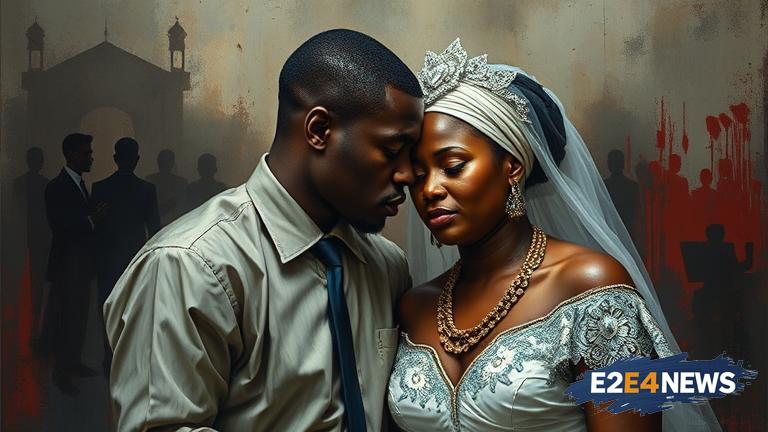In recent years, Nigeria has witnessed a surge in cases of violent marriages, with some resulting in the loss of lives. These incidents, often referred to as ‘bloody wedlock,’ have sparked widespread concern and debate among the public. The phenomenon is characterized by the brutal treatment of spouses, often by their partners or in-laws. Many of these cases involve women being subjected to physical and emotional abuse, with some even being murdered by their husbands. The root causes of this trend are complex and multifaceted, with factors such as poverty, lack of education, and cultural norms contributing to the problem. In some cases, the abuse is perpetuated by the societal expectation that women should be subservient to their husbands. The Nigerian government has been criticized for not doing enough to address the issue, with many calling for stricter laws and greater support for victims of domestic violence. Despite the challenges, there are many organizations and individuals working tirelessly to raise awareness and provide support to those affected. These efforts include counseling services, shelters, and advocacy campaigns aimed at changing the cultural narrative surrounding marriage and relationships. However, more needs to be done to address the systemic issues that contribute to this problem. The international community has also been urged to take notice of the situation and provide support to those working to combat the issue. It is essential to recognize that the problem of bloody wedlock is not unique to Nigeria and that similar cases can be found in many other countries around the world. Nevertheless, the Nigerian context presents a unique set of challenges that require a tailored approach. By working together, it is possible to create a safer and more supportive environment for all individuals, regardless of their marital status. Furthermore, it is crucial to address the economic and social factors that contribute to the problem, such as poverty and lack of access to education. Ultimately, the goal should be to create a society where marriage is a source of joy and support, rather than a source of fear and violence. The Nigerian government and civil society organizations must work together to develop effective strategies to prevent and respond to cases of bloody wedlock. This can be achieved through a combination of education, advocacy, and community engagement. Additionally, it is essential to provide support to victims of domestic violence, including counseling, shelter, and economic empowerment. By taking a comprehensive approach, it is possible to reduce the incidence of bloody wedlock and create a safer and more supportive environment for all Nigerians.
